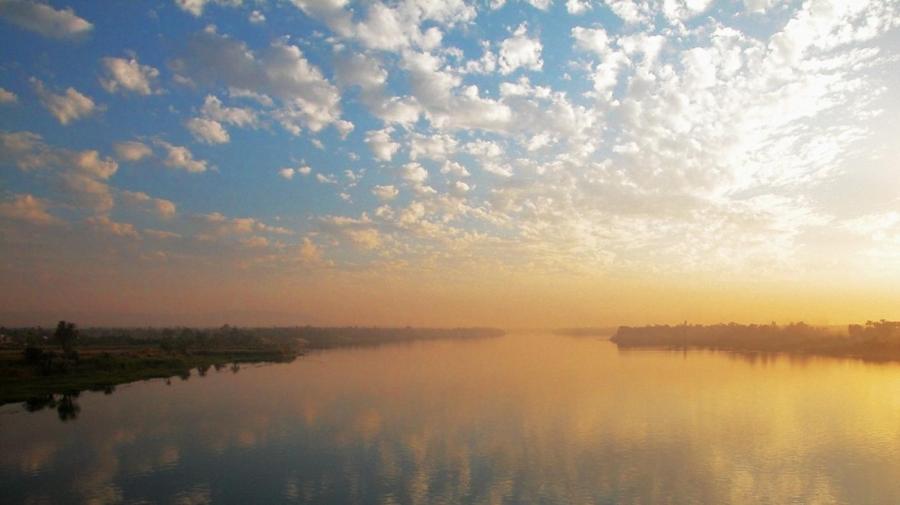Why Was the Nile River So Important to the Egyptians?

The Nile River was important to ancient Egyptians because it supported agriculture, was a source of food, assisted in transport and was a source of water. The Nile also protected ancient Egyptians from external attacks.
Agriculture The seasonal flooding of the Egyptian plains by the Nile River resulted in the deposition of fertile silt soil. This black soil contained vital nutrients that support agriculture. In addition, seasonal deposition of sediments resulted in a change of river course hence creating vast lands for agricultural use. Farming activities led to the development of settlements along the Nile River.
Source of Food The Nile River is home to a variety of fish species and other marine wildlife. Ancient Egyptians used spears and nets to capture fish from the Nile River. In addition, low flying birds could be captured by nets. This supplied the much needed proteins to the Egyptian population.
Source of Water Egypt lies in a desert-like environment with minimal rainfall, a limited number of water bodies and scarce vegetation. The Nile River provided water to ancient Egyptians for drinking and other domestic use.
Furthermore, water from the Nile River was used for irrigation of lands. Egyptians often dug canals that link the river to their farmlands. Also, they created water storage reservoirs that were to be filled during the flooding of the Nile River. These reservoirs ensured constant supply of water to animals and farmlands.
Supported Other Related Industries The Nile River supported various industries in the Egyptian society. The mud from the Nile was used as raw material for the well-established pottery industry. In addition, quarrying, mining, processing of stones, gems, metals and salt utilized materials sourced from the Nile River.
The reeds and papyrus which grew along the Nile River provided raw materials for making paper, basket, ropes, and boats. Moreover, trees and twigs that grew along the river were important sources of firewood and building materials.
Transport and Trade The Nile River provided a quicker transport route for the movement of goods from one settlement to another. This led to the development of the boat building industry and hence the growth of trade. Moreover, the development of settlements along the Nile River resulted in the growth of renowned ancient Egyptian towns. These towns attracted traders from neighboring regions of North Africa and the Middle East.
Protection from External Attacks The magnificent nature of the Nile River acted as protection for Egyptian settlements against external attacks. This is because ancient Egyptian enemies sometimes lacked boats to cross the Nile River. With minimal disruption to the Egyptian society, the society thrived in agriculture and trade.
Religious Symbol The Nile River was important to ancient Egyptians due to its religious significance. Ancient Egyptians believed that the flooding of the Nile River was caused by the Nile god Hapi. They honored Hapi for bringing fertility and prosperity to the Egyptian lands.
In modern-day Egypt, the Nile River continues to be an important source of livelihood for the Egyptian society. It provides water for irrigation, is used for transportation of goods, is a source of fish and acts as a tourist attraction. Moreover, the construction of the Aswan Dam ensured controlled flooding and is also used for the generation of hydro-electric power.





